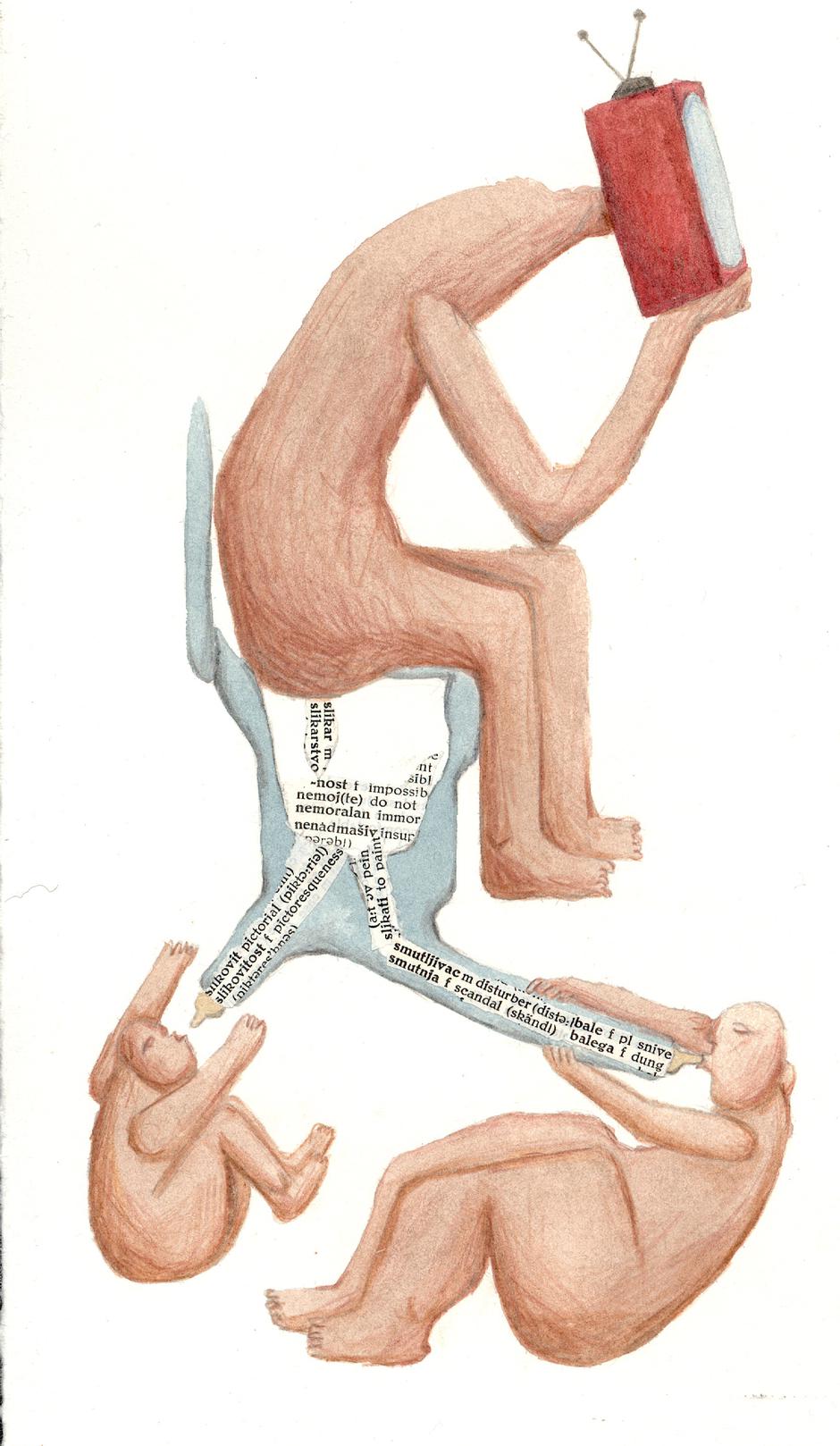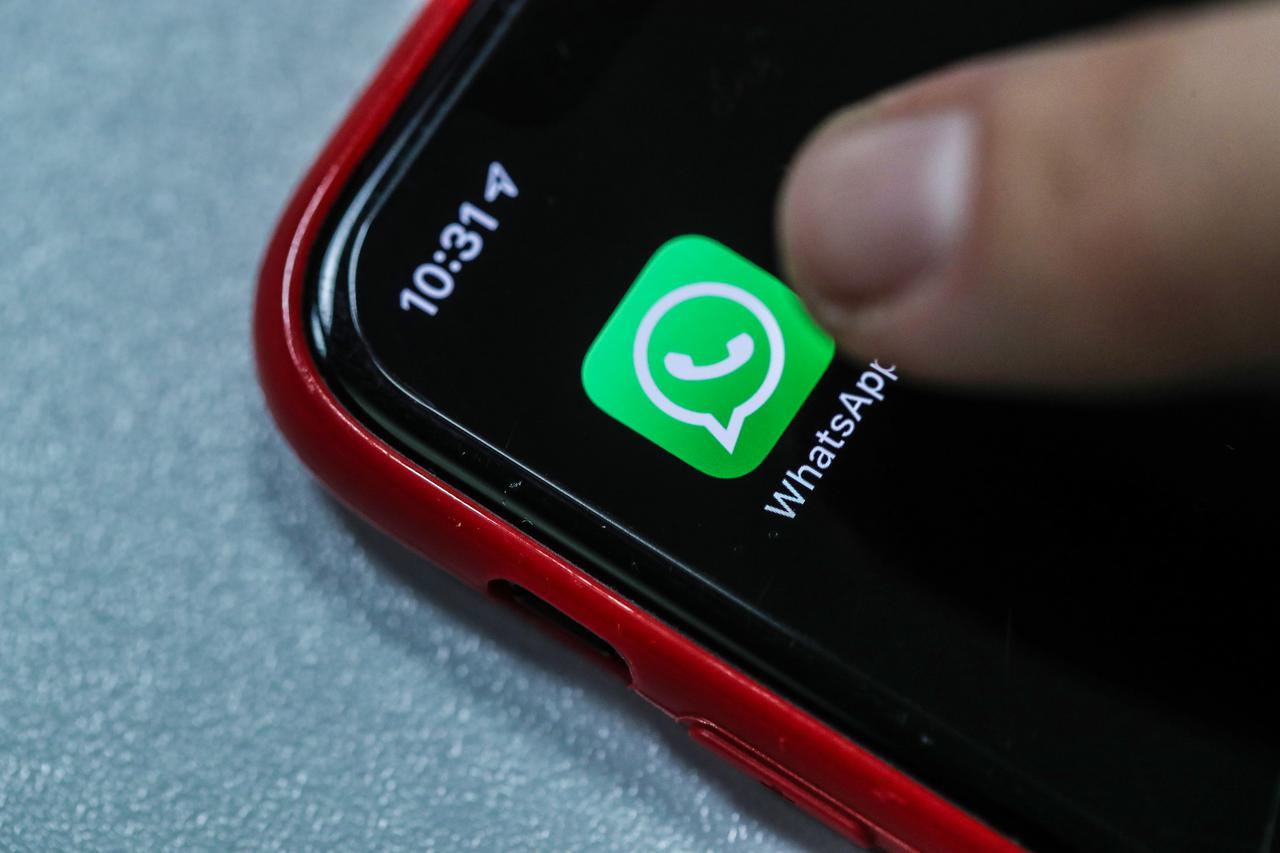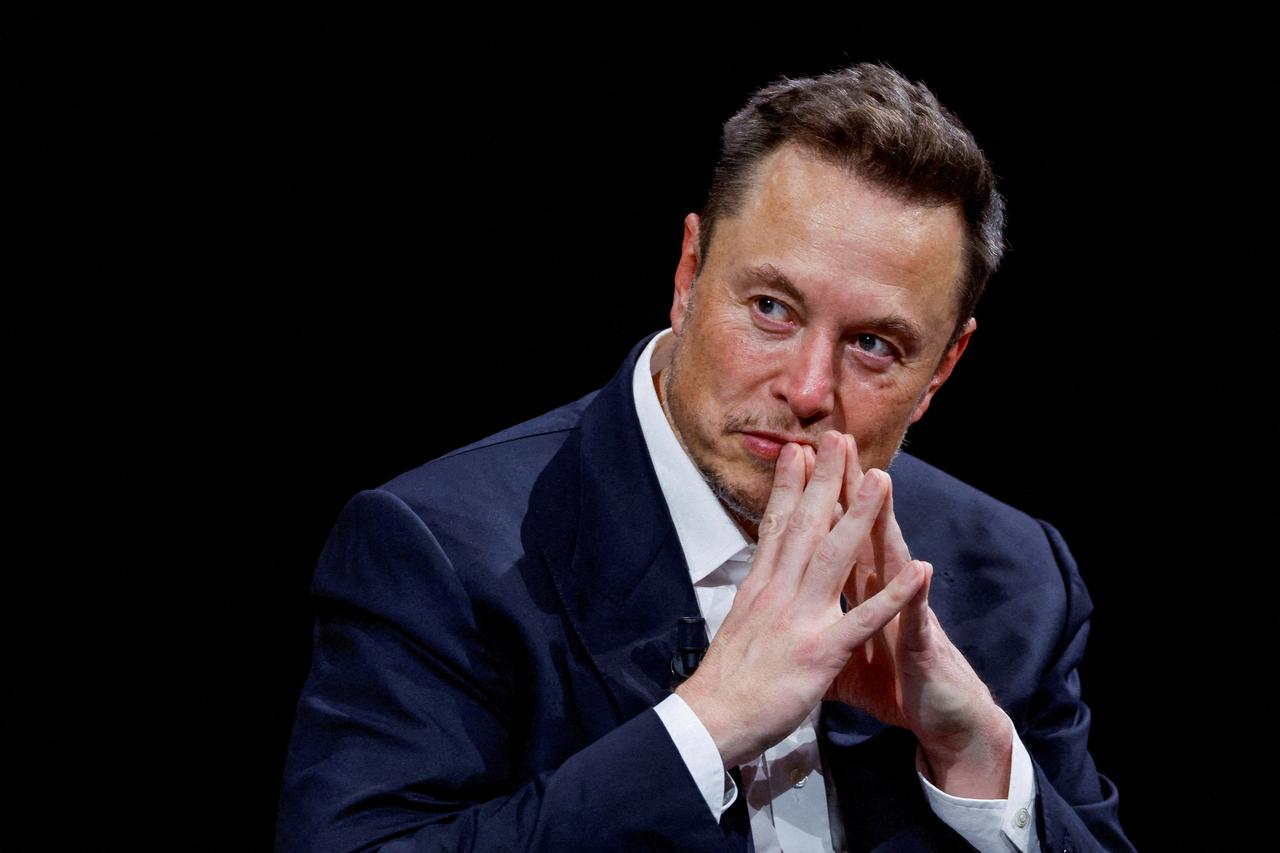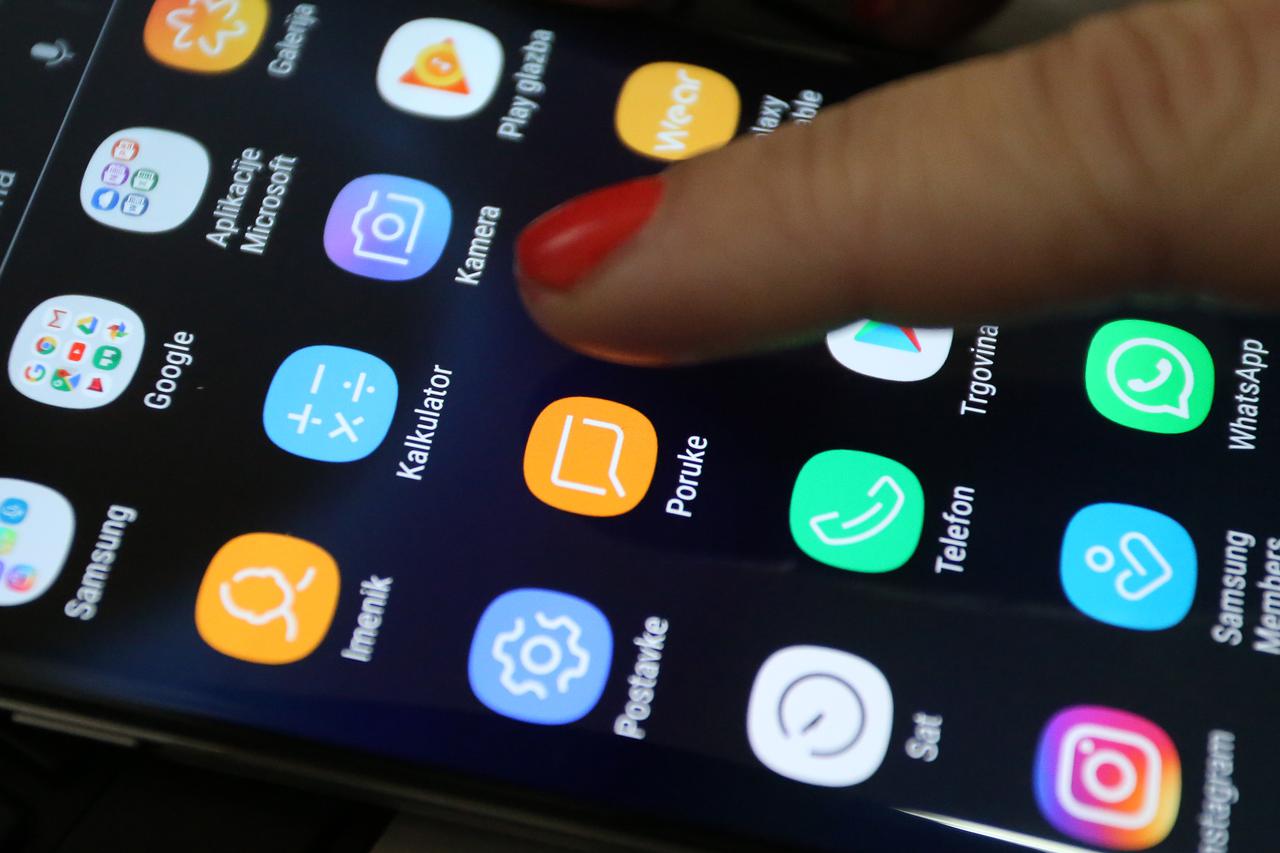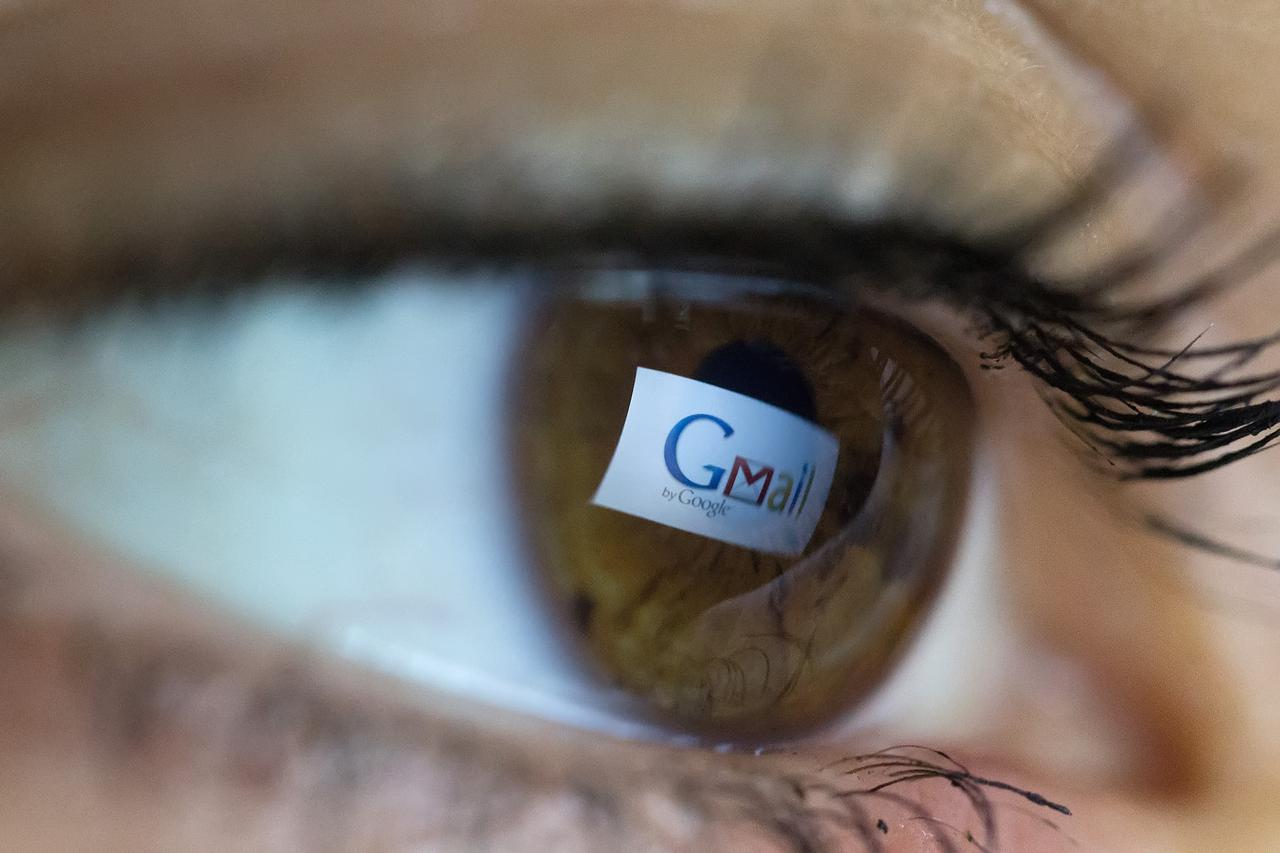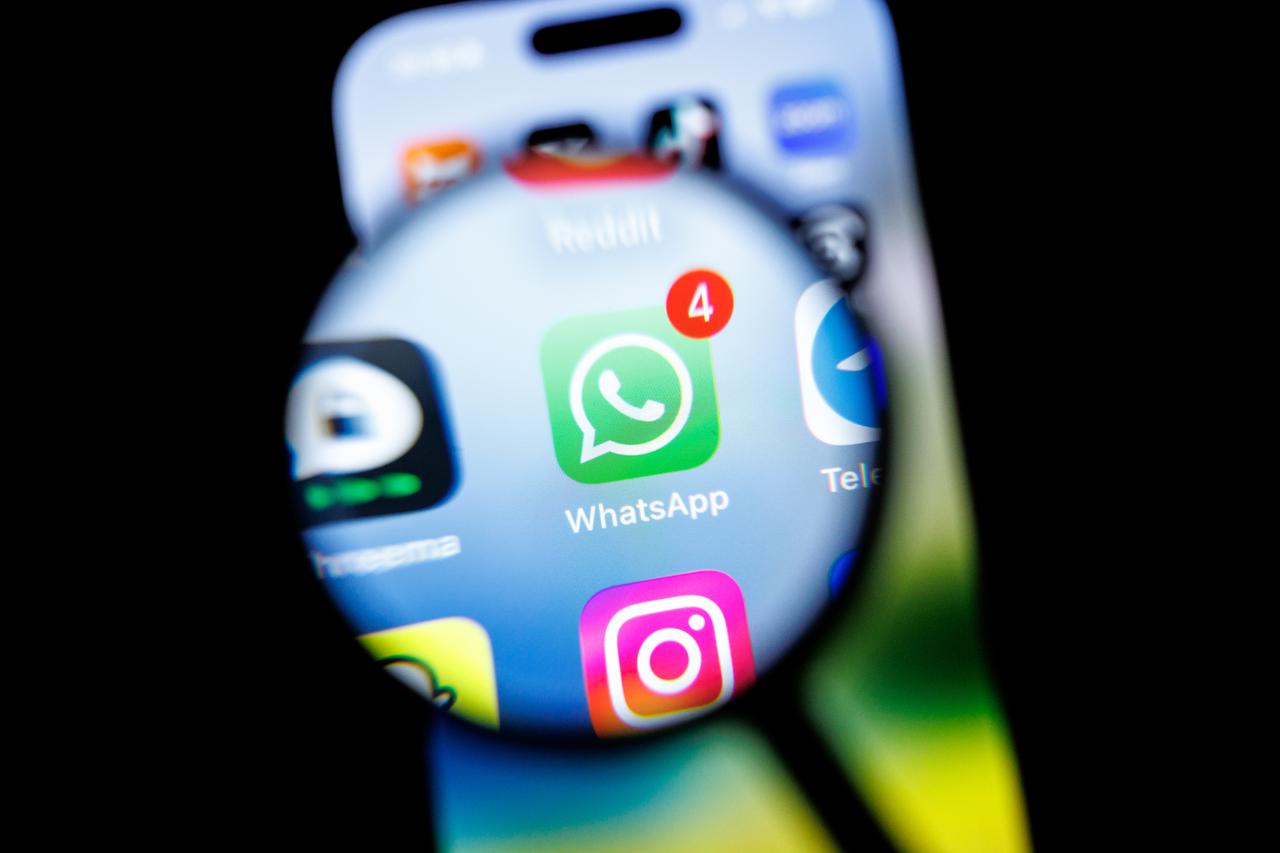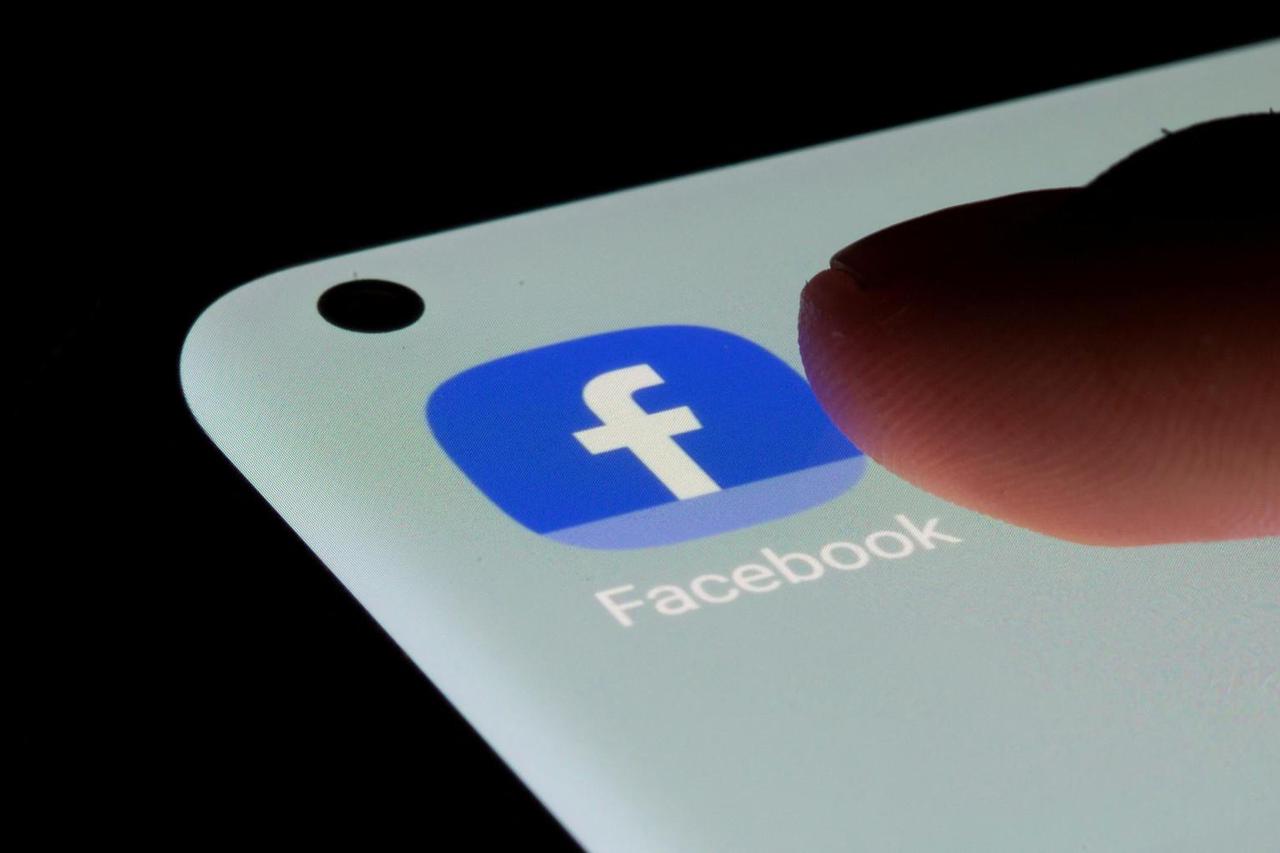A nostalgic remembrance of media technology from the last century and must-have home appliances in the 1960's, 1970's and 1980's is simply an appealing start to a visionary excursion in the year of 2068. Even upon a brief revisit to one's childhood, one gets a clear idea of the speed and the scale of media revolution that we have seen over the last fifty-odd years.
Let us start with black and white TV sets that always had a crocheted doily on top as an ornament. They had a random flicker of dots or snow screen and we need to recall the legendary adjusting of the antenna, both indoor and rooftop ones. After that, there was colour TV and remote controls, followed by video revolution. We watched Gremlins, Police Academy and Freddy Krueger on video tapes and paid fees at video rental stores until DVDs superseded them.
Vinyl records and transistor radios that were used for listening to live broadcasts of derbies of the most supported four football teams in the former Yugoslavia - Hajduk, Dinamo, Crvena zvezda and Partizan. Cassette players and subsequently CD players replaced them. The beginning of the 1980's was marked by the appearance of the Walkman and later on the Discman. It was at that point that the first mass marketed personal computers appeared and the first video games started gaining popularity.
Newspapers survived the rise of the radio, television and the first personal computers unscathed and succeeded in retaining their audiences against the backdrop of thriving electronic jungle.
And then in the 1990’s, the Guttenberg’s Galaxy, as the media of the last centurywere reffered to by the Canadian media theorist, Marshall McLuhan, was faced by the Internet and the world as we knew it drastically changed over a fantastically short period of time. Networked society at the turn of the new millennium completely redefined the concept of space and time and opened the door wide for the rise of a new communication paradigm, which would soon rule the world and the concepts that had defined the media and journalism of the 20th century would capitulate under its feet.
It is important to highlight that the brilliant McLuhan, back in the 1960's, predicted that the media would transform the world into "the global village". Nevertheless, even he was unable to predict the scope of the digital revolution and the appearance of platforms that ended the monopoly of the traditional media to "news" and "information" and completely transformed the modern role of journalism. Sender – message – recipient model of communication ended up outdated, while virtual space completely abolished physical boundaries and provided endless possibilities for horizontal communication among people. The launch of Facebook in 2004, followed by YouTube in 2005 and Twitter in 2006, which became famous as the SMS of the Internet, announced the appearance of a new communication paradigm that was finalised through smartphones. Upon smartphone expansion, another McLuhan’s prediction about the media as "extensions of man" came true. Mobile phones have become human extensions over an extremely short period of time, silicone limbs that have fully gained supremacy over modern everyday life.
This digital revolution, or evolution, depending on interpretation, was euphorically embraced by cyber-optimists, as opening of a passage towards a brave new world, which will empower everyday people, provide room for the inclusion of citizens and bring real democracy to humankind. They consider technology as a specific Holy Grail, which has a unique power to awaken democracy from a deep sleep. Citizen journalism, mass resistance movements such as Occupy Wall Street, #MeToo or Black Lives Matter and imposition of topics that had never been addressed by the mainstream media during the Pre-Internet Era, are examples of all the euphoric changes that lead us towards a better world.
On the other hand, cyber-pessimists or dystopians strongly disagree with their technologically supported romantic vision of the future. They see the future as grey, depressing and unhappy. They predict that "silicone obsession", as it was referred to by the American band Perfect Circle, will completely alienate people and discourage them from gaining any type of authentic experiences. People will become prisoners of cold virtual reality and devices in which it exists. The addiction to digital technologies will result in neurotic and handicapped generations, incapable of real human interaction. Digital addiction is currently a recognised clinical condition that implies continuous compulsive checking of phones and other devices. Pessimists believe that this addiction will prove to be the most large-scale and the most devastating epidemic of the 21st century.
Their arguments about the destructive role of the digital technologies are currently regularly pointed out also by social media critics who claim that Facebook and other similar platforms will destroy democracy and drag the world into an era of autocracy. They believe that it is actually them, among others, that need to be thanked for the rise of extremist and populist options whose support in Europe has tripled over the last two decades, according to a recent research by The Guardian. Full openness of cyberspace and the possibility for direct communication with supporters has enabled radical groups to promote ideas, which would have hardly reached the traditional media previously, in the pre-Internet era and in an almost vanished era of highly professional journalism.
Bleak forecasts have additionally been prompted by the events linked with the notorious role of Facebook in the Cambridge Analytica data scandal. Cambridge Analytica was the company that harvested the personal data of millions of Facebook users, which it subsequently used to target American voters on behalf of Donald Trump in the 2016 presidential election and strived to persuade the British to vote"leave" in the UK’s Brexit referendum. What will the media, media technologies and journalism be like in fifty years’ time, against the backdrop of the current technological and communication environment?
The future of media: technology and journalism
For starters, it is highly likely that we will be watching television in an advanced holographic version of the screen, whose experimental version has recently been presented by the BBC. Television anchors may be fully replaced by their computer counterparts, some holographic versions of Šprajc, Bago or Togonal. Mobile technology may also go beyond the screen, while the use of mobile apps will be facilitated by virtual assistants. Apple’s Siri and Amazon’s Alexa are widely popular in America and it is highly likely that they will continue gaining popularity and be increasingly used on a massive scale.
The demand for personalised content that was accelerated by the social media with their newsfeeds and platforms like Netflix may put an end to the original conception of television. Will in fifty years’ time each one of us be watching our own, fully personalized version of television or some type of video programme? That would be a logical culmination of media content filtering based on individual values, preferences and tastes of both viewers and readers. The consequences of such algorithmic content personalisation, as currently perceived by media theorists, are rather negative.
Among the most dangerous consequences is the creation of the so-called filter-bubble, virtual bunkers where people close themselves in and within which they consume exclusively the information that is in line with their interests and beliefs. Interaction with those who are not like-minded will be reduced to the minimum, while simultaneously those who think differently are frequently considered as very dangerous. The public sphere, as an open and free space for public debate about issues of public interest, will slowly be dying out and people will eventually be living in private, parallel realities that had been defined for them by the media and calibrated by algorithms. What will in that context happen with the concept of news and the idea of objectivity in journalism, if it still exists after all? How much time will it be before Amazon starts selling access to the news, in the same way that it is currently selling access to entertainment content through Amazon Prime? What are the implications of this for journalism as a profession?
Will all types of media be able to survive the mutation currently undergone by media eco-systems? Newspapers are certainly the most jeopardised and unless they are are being protected as a part of social capital, it is hard to believe that they will be sustainable in their original, printed version.
According to a research conducted by the Reuters Institute, in 2017, 66 % of youth aged 18 to 24 years, known as Generation Z, were primarily informed from online sources. It is important to point out that half of them consumed news and informed primarily through social media. Television was the most frequent information source for 24% of the respondents. Expectedly, only 5% were informed through newspapers, while the radio, pointed out by only 4 % of the respondents, ranked at the bottom of the list of news sources. However, the radio proved as highly resilient. Irrespective of the fact that, back in 1979, The Buggles in their hit song justifiably claimed that "video killed the radio star", it appears that the radio was the first to have realised that the key to survival is specialisation, or content personalisation. Moreover, the radio has been the most trusted media in Europe for decades. Consequently, it is not difficult to pretend to have clairvoyant abilities and claim that the radio is highly likely to find its own market niche and survival model through specialised radio stations and production of specialised content or podcasts.
It is important to emphasise that digital newspapers have in general been faced with circulation decline. Nevertheless, the American newspapers The Washington Post and The New York Times, which are among the most severe critics of the American president Donald Trump, are considered as an exception. Irrespective of the fact that they charge for the access to their online content, the number of their subscribers has miraculously doubled over the past year. The Reuters Institute explains this fact by the so-called "Trump bump". In other words, they claim that the new subscribers to The Washington Post and The New York Times are all liberal voters who believe that these newspapers will provide them with "quality" information about Trump and his administration. Hence, a rather unfortunate conclusion can be reached – that the previously mentioned filter-bubble may represent a long-term survival formula for the newspapers.
This leads us to the issue of future media content
The logic of generation and placement of media content in fifty years’ time will probably be based on what Yuval Harari refers to as "Dataism" – superiority of information and algorithms. The power of algorithms is currently most obvious in the previously mentioned personalisation or targeting users with content that will make them hooked on and that had been created through scanning of their digital profiles. On the other hand, a familiar form of algorithmic journalism consists of irritating clickbait headlines, calculated emotional hooks that have replaced the traditional headlines. "You wouldn’t believe it", "This will give you goose bumps", "7 reasons for ..." are but a few examples. Such baits are an unfortunate response of a large number of newspapers and web portals to the so-called attention economy whose main currency are the clicks. Interestingly, Facebook has recently started a war against clickbait headlines and has decided to supress them in its newsfeed, while, on the other hand, a wide range of newsrooms still place clickbait headlines at the core of their business strategy.
This actually indicates that newspapers have been unprepared for facing the digital revolution and that in general journalism has difficulties in tackling the challenges of the digital environment. Fake news is an even better proof of the latter. In a world in which everyone with a mobile phone or a computer is a potential journalist, in which there is an endless number of potential information sources and absolutely no verification system, the explosion of fake news was only a matter of time. Nevertheless, it is completely unclear why the media have started uncritically referring to fabricated information as "fake news" and were tricked into the hoax of the decade. In fact, as the reputable American Professor of Political Communication and Media, Kathleen Hall Jamieson, pointed out, fake news is an oxymoron – if something is fake, it cannot be news. Unfortunately, the media, thirsty for conflicts and sensations, are currently hooked on this phrase and have provided the fabrications with the credibility of news – irrespective of the fact that they are fake.
Hence, the meaningless term "fake news" has become an established concept that books are written about, about which declarations have been adopted and against which action plans are created. To make things better, Trump’s continuous lamentation over mainstream media as "fake news" has resulted in an increasing number of members of the general public, not only in America, but also in Europe, opting for alternative news sources, because they no longer trust the traditional media that "spread fake news". So, the media have shot themselves in the foot.
In general, journalism has shown a very poor capacity for adaptation to new circumstances and unless that changes, it is absolutely realistic to expect that by 2068 journalism as we knew it will completely disappear and will be replaced by algorithmic or robot journalism. The consequences for both the society and democracy are difficult to predict, yet they can hardly be positive.
Conditions for survival
On the other hand, what would it take for traditional journalistm to survive? Firstly, news source reliability and professional integrity both of the editorial board and journalists are the last boundary between quality content and absolute chaos that is not at all harmless. From this awareness a wish needs to arise to preserve traditional journalism.
In other words, it requires a consensus about values that go beyond the commercial criteria and that are worth fighitng for. That belief needs to be supported by relevant regulations. Secondly, the media need to adapt, through both format and language, to cultural codes of the specific time. In case of Generation Z, these are, for example, the selfies, memes and likes. It is difficult to predict the media language that will be used by future generations, the so-called "Generation Alpha", "Generation Beta" and so forth, but the future media will need to be well acquainted with their language. They will not be competing for attention of Gen Alpha and Gen Beta only with rival newsrooms, but also with future versions of YouTube influencers, such as lifestyle vlogger Jenna Marbles whose YouTube channel has almost 19 million subscribers and who is highly influential, as indicated by her title.
Thirdly, radical change of media and communication environment needs to be accompanied by adequate education, today most frequently referred to as media literacy. Concerning the increasing number of initiatives and actual programmes, media literacy education will certainly become an integral part of future curricula. Nevertheless, media education needs to beware of falling into the trap of moral panic. In fact, appearance of every new media is accompanied by fear that it will endanger the society we live in. In the 1950’s, moral activists considered television as a real Poltergeist, a demon coming out of the screen, devouring the collective morality and social health. One of the most powerful manifestos against television was the iconic book by Neil Postman "Amusing Ourselves To Death", published in 1985. In this book, he accused television of banalisation of public space and utter degradation of the American society. According to Postman, the only possible solution that could save America from the disastrous effects of television is education. For television "all the world is a stage, but the stage is located in Las Vegas" and the only salvation is to be found in schools that needs to deconstruct television and its both seductive and destructive power.
Discussions about digital literacy are frequently following in the footsteps of Postman’s dramatics and depressing arguments of cyber-pessimists about apocalyptic end of the world as we know it. Although their concern is partly justified, the demonization of the digital environment does not appear overly meaningful. The futurist and demographer Mark McCrindle believes that children of next generation, Generation Alpha will grow up with iPads in their hands, never live without a smartphone and will be able to transfer a thought online in a second using the digital technology. As a result of these large-scale technological changes, Generation Alpha is the most adaptable generation thus far, according to McCrindle. This means that future generations will operate in a completely different communication matrix that they will find completely natural. For us this will be the world of invasive distractions, while for them it will be the rhythm of everyday life. It would be utterly inappropriate to evaluate new practices and routines using the criteria of our age and the logic of the former, obsolete system, while lamenting over the terrible fate of the digital generations. For example, one of the gravest concerns nowadays is social media invasion and in general digital technology invasion of our privacy. The generation living in the year 2068 will not be interested in that at all, since privacy, as our generation knows it, will completely disappear. They will be acquainted with "our" type of privacy only as a historical concept. Their idea of privacy will probably include some form of intentional exposure, but it will certainly be significantly different from what is currently denoted by that concept.
Conclusion
Digital technology has radically changed dominant communication practices of the 20th century. Some welcome this change with almost a naïve delight, while others see it as the beginning of the end of the world. Somewhere in between there are those who believe that technology can be equally god and bad, depending on how it is managed.
In general, predicting the future is a rather challenging task, and, according to the journalist Peter Wilby, anybody who says they can predict the future of the media is either a fool or a liar. Innovations brought about by digital technology onto the world of media are so radical, unpredictable and rapid that anyone who has attempted to predict anything must certainly have eventually felt like a fool. I will take the risk and state that some things still appear rather certain.
In the next fifty years, digital evolution will change the way in which we consume media content. The changes will include those in technologies through which the content is provided and their presentation logic and methods of consumption. The battle for our attention will continue, while the quantity of stimuli that we are exposed to will see a progressive increase. Both adults and children need to be educated for the media environment in which they have been cultivated, both concerning its benefits and concerning traps. Nevertheless, media educators, if they are striving for effectiveness, must not treat new media as the bogeymen, but rather as irreversible reality that one needs to learn how to manage. Digital addiction will become a chronic problem included in the domain of public health, like smoking. Moreover, new media technologies will result in new forms of addiction.
Concerning journalism, it is infallibly following the path of personalisation or optimisation of content, as it has been referred to in a cunning and PR-like manner by those who earn their living from it. Computers and algorithms will play the central role in this process. It is currently impossible to predict the long-term effects either for journalism or for the overall health of the society. Nevertheless, the projections are primarily bleak. Some of the most likely scenarios include an increasing bias of the traditional media, a rising number of alternative obscure sources and a decreasing tolerance towards those who do not share one’s opinions, which will inevitably lead towards a greater polarisation of society and disintegration of the public sphere. Simultaneously, journalism needs to tackle the problem of the general decline of trist and overall decrease in the quality of journalism as a profession. It has to be pointed out that invocation of the "golden age" of journalism from the period of Watergate heroes, Bob Woodward and Carl Bernstein, will not do much good, and neither will the hysteria around fake news and similar diversions. If journalism is striving to survive, it needs to provide solutions based on credibility, those that adapt to new formats and those arising from the new communication paradigm, rather than those adhering to the postulates of the 20th century jurnalism.
Finally, the relevant institutions will have to react considerably more quickly and in a much more effective way to the appearance of new communication platforms. The rise of social media started around fifteen years ago, yet regulators are currently still amazed by Facebook performance. In other words, imaginativeness and the speed of creators of new technologies and platforms is proportional to ignorance, inertia and incompetence of institutions to adequately keep abreast with these media innovations. Unless significant changes occur, the changed political landscape is one of the direct consequences of this alarming inferiority of institutions whose effects will be felt by the generation 2068.







